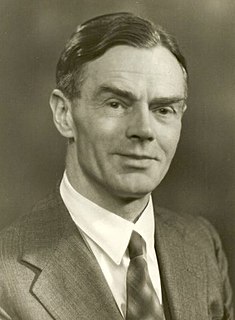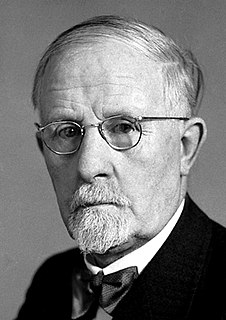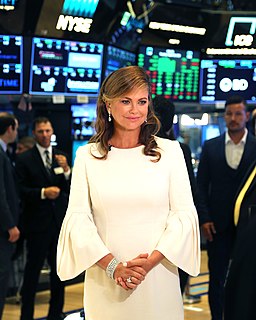A Quote by Peter L. Berger
The human organism is thus still developing biologically while already standing in a relationship to its environmont. In other words, the process of becoming man takes place in an interrelationship with an environment. (...) From the moment of birth, man's organismic development, and indeed a large part of his biological being as such, are subjected to continuing socially determined interference.
Related Quotes
Man is suddenly becoming aware that by an ill-considered exploitation of nature he risks destroying it and becoming in his turn the victim of this degradation. Not only is the material environment becoming a permanent menace - pollution and refuse, new illness and absolute destructive capacity - but the human framework is no longer under man's control, thus creating an environment for tomorrow which may well be intolerable. This is a wide-ranging social problem which concerns the entire human family.
By contrast with history, evolution is an unconscious process. Another, and perhaps a better way of putting it would be to say that evolution is a natural process, history a human one.... Insofar as we treat man as a part of nature--for instance in a biological survey of evolution--we are precisely not treating him as a historical being. As a historically developing being, he is set over against nature, both as a knower and as a doer.
But nature - that is, biological evolution - has not fitted man to any specific environment. On the contrary, ... he has a rather crude survival kit; and yet -this is the paradox of the human condition - one that fits him to all environments. Among the multitude of animals which scamper, fly, burrow and swim around us, man is the only one who is not locked into his environment. His imagination, his reason, his emotional subtlety and toughness, make it possible for him not to accept the environment but to change it.
The most important characteristic of an organism is that capacity for internal self-renewal known as health. There are two organisms whose processes of self-renewal have been subjected to human interference and control. One of these is man himself (medicine and public health). The other is land (agriculture and coservation). The effort to control the health of land has not been very successful.
On the one hand, man is a body, in the same way that this may be said of every other animal organism. On the other hand, man has a body. That is, man experiences himself as an entity that is not identical with his body, but that, on the contrary, has that body at its disposal. In other words, man's experience of himself always hovers in a balance between being and having a body, a balance that must be redressed again and again.
In the life of our organism, we are continually dealing with a development of force followed by a state of equilibrium. Of course, the human being has no conscious knowledge of what is really going on within him, but what takes place is so infinitely wise that the cleverness of the human ego is nothing by comparison.
Is it all right for the government to allow the murder of an innocent human being? From the moment of conception, a new life comes into being with a complete genetic blueprint. The sex is determined. The blood type is determined. The moment that I learned the unborn was not part of the woman's body but its own individual human being, I have no choice but to defend the most vulnerable among us.
Existential psychotherapy is the movement which, although standing on one side on the scientific analysis owed chiefly to the genius of Freud , also brings back into the picture the understanding of man on the deeper and broader level man as the being who is human. It is based on the assumption that it is possible to have a science of man which does not fragmentize man and destroy his humanity at the same moment as it studies him. It unites science and ontology .



































